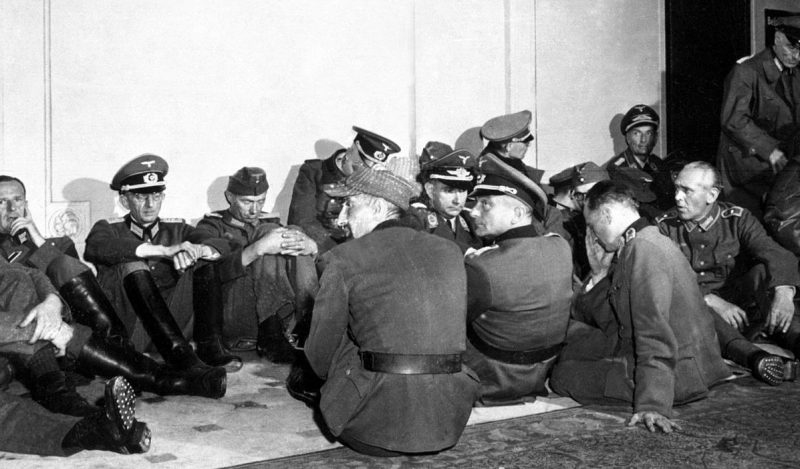One second they were there, the next they were gone.
Such is the memory of World War II veteran Herbert McClure, who while waiting for his return to the United States, was detailed to act as a guard at Landsberg Prison in Germany where Nazi war criminals were hanged.
Over two days, he heard the thump 28 times as men hit the end of the rope. It was 14 hangings per day, he recalled. It isn’t something he would have volunteered, but they were ordered to do. They didn’t have a choice.
Recently retired, the 92-year-old Tulsa resident shelved his woodworking tools after more than 60 years in the furniture business, first as an employee then the owner of McClure Furniture Refinishing and Gentry Job Shop now run by his son.
His wife, Bonnie, to whom he has been married for 70 years, was advised when he was drafted that he might not come home, so they put wedding plans hold. He didn’t want her to be war widow, so she agreed to wait for him. While he was overseas, she helped make 60 mm mortar shells for the war. These were the types of shells McClure used to carry, supplying the mortar crew of which he was a member.
He was assigned to the 90th Infantry Division (357th Battalion) and with a friend, reported for boot camp at Camp Roberts, California. That was supposed to last 17 weeks, but their division had so many casualties in Europe, training was cut to three months.
He arrived in Europe in early January 1945 as the Battle of the Bulge was ending, but not the winter weather, the worst in 100 years. Their combat experience was complicated by the sub-zero temperatures, but combat had to be carried on.
His battalion moved into Germany and began capturing towns. There were many of them, he said. When one was taken, another could be seen a short distance away.
The advantage of being a mortarman while taking a town, he explained, is that the machine gunners were in the forefront, followed by the riflemen. The mortar crew was last. That kept them out of the way of small arms fire.
Eventually, he was transferred Stateside. Thirty days after arriving back in Neodesha, Kansas, he and Bonnie were married. McClure said he has never had nightmares such as other veterans have experienced.
